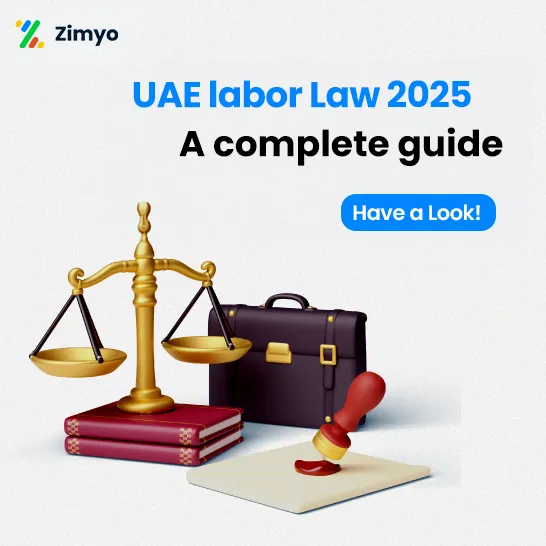To comply with labor law rules and protect new mothers, both the employees and the employers should understand maternity leave in Thailand. This helps support the health and well-being of mothers and their families.
As stated by a recent ILO study, both mothers and newborns benefit from sufficient maternity leave and women can continue working afterwards. This is a clear indication of the importance of maternity leave.
You will find information in this guide about being eligible for maternity leave, the total number of maternity leave days, pay and benefits, the duties of the employer and some important exceptions regarding maternity leave in Thailand.

What is Maternity Leave?
The purpose of maternity leave is to ensure mothers have enough days to rest, bond with their newborn and return to their work without risking, comprising their jobs or facing financial instability.
Thai workers are given time off from work to look after themselves and their newborn during maternity leave. Basically, the Labour Protection Act (LPA) B.E. 2541 (1998) and the Social Security Act B.E. 2533 (1990) set out the rules for maternity leave.
Eligibility Criteria
Not every woman qualifies for the full maternity leave in Thailand guaranteed by law. An employee who wants maternity leave in Thailand must meet certain criterion:
- The woman must have worked continuously for the same employer for at least 180 days before the expected delivery date. This ensures that the benefits support women with a stable employment history.
- To get maternity leave pay from the SSF on approved leave, the employee must have contributed for at least 5 of the previous 15 months. This rule links benefits to Social Security participation and helps fund payments.
Exclusions and Special Cases:
- Freelancers, self-employed women, and informal workers generally do not qualify for paid maternity leave under current laws, although they may seek other types of social assistance.
- Contract workers and temporary employees might only be entitled to employer-paid leave (the first 45 days) if their contracts provide for it, but not Social Security benefits.
- In cases of miscarriage after 12 weeks, maternity leave protections may still apply, but compensation depends on employer policies.
Recent Amendments
- Extended Leave Duration: The total maternity leave has been extended from 98 days to 120 days per pregnancy. This change aligns Thailand more closely with international recommendations and better supports maternal recovery and infant care.
- Pay Structure: Maternity pay is split between employers and the Social Security Fund:
- The first 45 days are paid at 100% of the employee’s regular wage by the employer.
- The remaining 75 days are paid for by the Social Security Fund at 50% of the average wage, subject to a monthly cap of THB 15,000.
- Eligibility Requirements: Employees must have worked at least 180 days before the due date and meet Social Security contribution requirements to receive full benefits.
Duration of Maternity Leave in Thailand
Aspect | Details |
Total maternity leave | 120 days (approx. 4 months) per pregnancy |
Eligibility | Must have worked 180 days before childbirth |
Social Security | Must have contributed at least 5 months in last 15 months to qualify for SSF pay |
Multiple births | Leave duration remains 120 days, no extra days for twins or multiples |
The 120 days consist of both paid leave and legally protected unpaid leave (if any additional time is taken).
Maternity Leave Pay
The pay during maternity leave in Thailand comes from two sources and depends on eligibility:
1. Employer-Paid Leave (First 45 Days)
Employers must pay the employee’s full wage for the first 45 days of maternity leave.
2. Social Security Fund (SSF) Paid Leave (Next 75 Days)
- The SSF pays 50% of the average monthly wage during this period.
- There is a maximum monthly cap of THB 15,000.
- To be eligible for this, the employee must have contributed to SSF for at least 5 months in the past 15 months.
Example Calculation:
For an employee earning THB 18,000 per month:
- Employer pays approximately THB 600/day × 45 days = THB 27,000
- Social Security pays 50% of THB 18,000 = THB 9,000 per month (capped), so about THB 300/day × 75 days = THB 22,500
- Total maternity pay: THB 49,500
Those who fail to meet the SSF requirements get only the first 45 day’s wages from their employer.
Since the process of maternity leave calculation and legislation can be complex, several employers depend on HR software like Zimyo’s Leave Management to manage leave and connect it to payroll with ease.
Employer Responsibilities During Maternity Leave in Thailand
Employers play a vital role in supporting maternity leave:
- Payment: Must pay full salary for the first 45 days of maternity leave.
- Job Security: It is illegal to terminate an employee because she is pregnant or on maternity leave.
- Work Conditions: Since hazardous work and night shifts (10 PM to 6 AM) can be hazardous during pregnancy, such jobs should not be given to pregnant employees.
- Work Adjustments: If a medical letter from the doctor shows that lighter duties are needed, employers need to arrange this for the employee.
- Job Protection: After giving birth and finishing maternity leave, the employee must be able to resume the previous job or one of similar position.
The new legislation supports pregnancy and new mothers in looking after their own health and rights.
Handling all human resources needs with Zimyo’s HR Software allows employers to follow regulations and avoid managing leave requests, work adjustments, and protecting employees on different platforms.
Exceptions and Special Cases
- Freelancers and Self-Employed: Generally, the Labour Protection Act and Social Security maternity benefits do not include freelancers and self-employed people, but they can obtain social welfare assistance from the government.
- Contract and Temporary Workers: May have limited or no maternity leave benefits depending on their contracts.
- Miscarriage or Stillbirth: Where a miscarriage happens after 12 weeks, employers may still provide maternity leave pay to employees at their discretion .
- Multiple Births: No extra leave beyond the standard 120 days is provided, regardless of twins or multiple.
- High-Salary Employees: Social Security payments are capped, which means employees with higher salaries may receive less than 50% of their normal wage during SSF-paid leave.
Tips for Employers
Employers looking to create a family-friendly workplace and boost employee retention can consider going beyond minimum legal requirements:
- Let mothers take extra paid leave after the required 45 days of maternity leave from work.
- Let returning mothers have flexible schedules such as part-time shifts or working from home.
- Provide on-site childcare, including on-site nurseries or give parents access to lactation rooms. Ensure that company regulations are kept updated by knowing about any new laws.
- Trust HR software like Zimyo to automate all steps in the maternity leave process and make your work easier.
Conclusion
Providing maternity leave helps Thailand promote fairness between genders and makes sure employees are supported. Because the Labour Protection Act details employee’s rights, benefits and employers’ responsibilities, it is necessary for organizations to be updated with the current rules.
Zimyo’s leave and attendance management system helps HR to ensure that employees are given proper leave policies and leave tracking, intuitive dashboards and geofenced attendance system, and work-shift management.
You can set up your own leave policy, handle all payroll tasks and law compliance suitable for complying with Thai laws on maternity leave. Zimyo helps streamline the admin side, so teams are able to concentrate on providing support to employees.
FAQ's (Frequently Asked Questions)
In Thailand, how long is the maternity leave that women are granted?
There is maternity leave at 120 days per pregnancy for every woman.
Who is responsible for paying maternity leave benefits?
Employers pay 100% of their salary for the first 45 days, and the Social Security Fund pays 50% for the next 75 days if the employee qualifies.
Can an employer terminate a woman because she is pregnant or on maternity leave?
No, Thai labor laws strictly prohibit terminating employees due to pregnancy or maternity leave.
What happens if an employee hasn’t contributed enough to the Social Security Fund?
She will receive only the first 45 days of paid leave from the employer.
Are freelancers and contract workers eligible for maternity leave in Thailand?
Usually not unless their contract or employer provides such benefits voluntarily.































